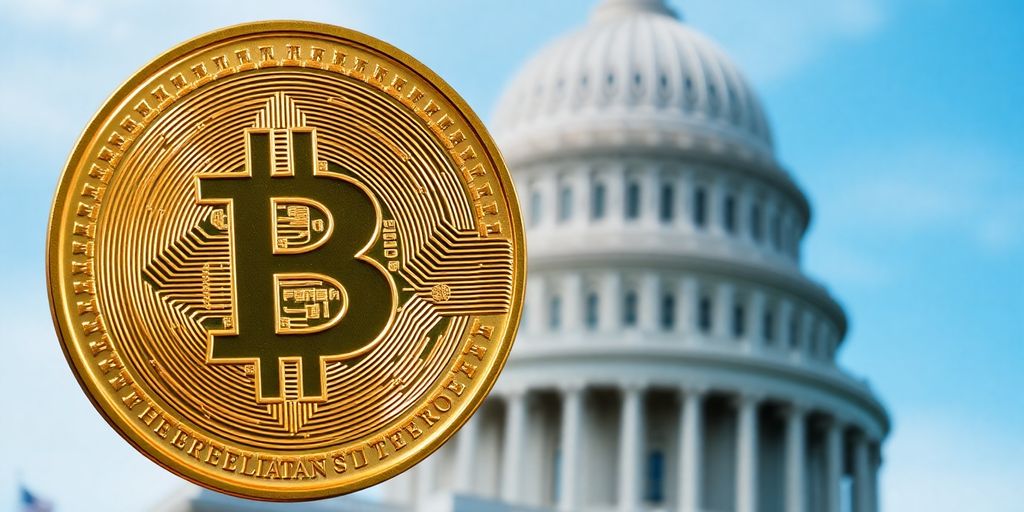Senate Democrats are hesitating to advance crucial stablecoin legislation due to concerns over former President Donald Trump’s financial ties to the cryptocurrency industry. This development could significantly impact the broader market structure legislation that the crypto sector has long sought.
Key Takeaways
- Senate Democrats, led by Sen. Ruben Gallego, are blocking the current version of the GENIUS Act, a key stablecoin bill.
- Trump’s recent crypto ventures have raised ethical concerns among lawmakers, potentially delaying critical legislation.
- The crypto industry is urging Congress to move forward with regulatory frameworks to ensure consumer protection and market stability.
Background on the GENIUS Act
The Guiding and Establishing National Innovation for U.S. Stablecoins of 2025 (GENIUS Act) aims to create a regulatory framework for stablecoins, which are digital currencies pegged to traditional assets like the U.S. dollar. However, the bill’s progress is now in jeopardy due to political tensions surrounding Trump’s involvement in the crypto space.
Sen. Gallego, who has received substantial backing from crypto super PAC Fairshake, along with eight other Democratic senators, has expressed that they will not support the bill in its current form. They argue that the legislation lacks necessary provisions to protect consumers and ensure accountability within the industry.
Trump’s Controversial Crypto Ventures
Recent announcements have intensified scrutiny on Trump’s financial interests in cryptocurrency. Notably, Trump hosted a dinner for major holders of his memecoin, and an Abu Dhabi investment firm announced plans to use a stablecoin backed by Trump’s family for investments in Binance. These developments suggest that Trump could personally benefit from the legislation, raising ethical questions among lawmakers.
In response to these concerns, Trump has publicly denied profiting from his crypto ventures, emphasizing the importance of cryptocurrency for American innovation and competitiveness against countries like China.
Legislative Implications
The implications of this political standoff extend beyond the stablecoin bill. The ongoing debate could delay the much-anticipated market structure legislation, which aims to clarify the roles of the U.S. Securities and Exchange Commission (SEC) and the Commodity Futures Trading Commission (CFTC) in regulating the crypto industry. This legislation is crucial for establishing a comprehensive regulatory framework that addresses a wide range of activities within the crypto market.
Democratic leaders, including Senate Minority Leader Chuck Schumer, have advised caution, indicating that the party may need to reassess its support for the stablecoin bill until concerns regarding Trump’s involvement are adequately addressed.
Industry Response
The crypto industry is reacting swiftly to the legislative gridlock. Lobbyists have issued statements urging lawmakers to prioritize the GENIUS Act, emphasizing the need for a clear regulatory framework to foster innovation and protect consumers. Organizations like the Blockchain Association and the National Venture Capital Association have called for bipartisan support to ensure the U.S. maintains its leadership in the digital economy.
Conclusion
As the political landscape surrounding cryptocurrency continues to evolve, the fate of the GENIUS Act and broader market structure legislation hangs in the balance. With Democrats divided over Trump’s financial ties to the industry, the path forward remains uncertain. The outcome of this legislative battle will have significant implications for the future of cryptocurrency regulation in the United States.








